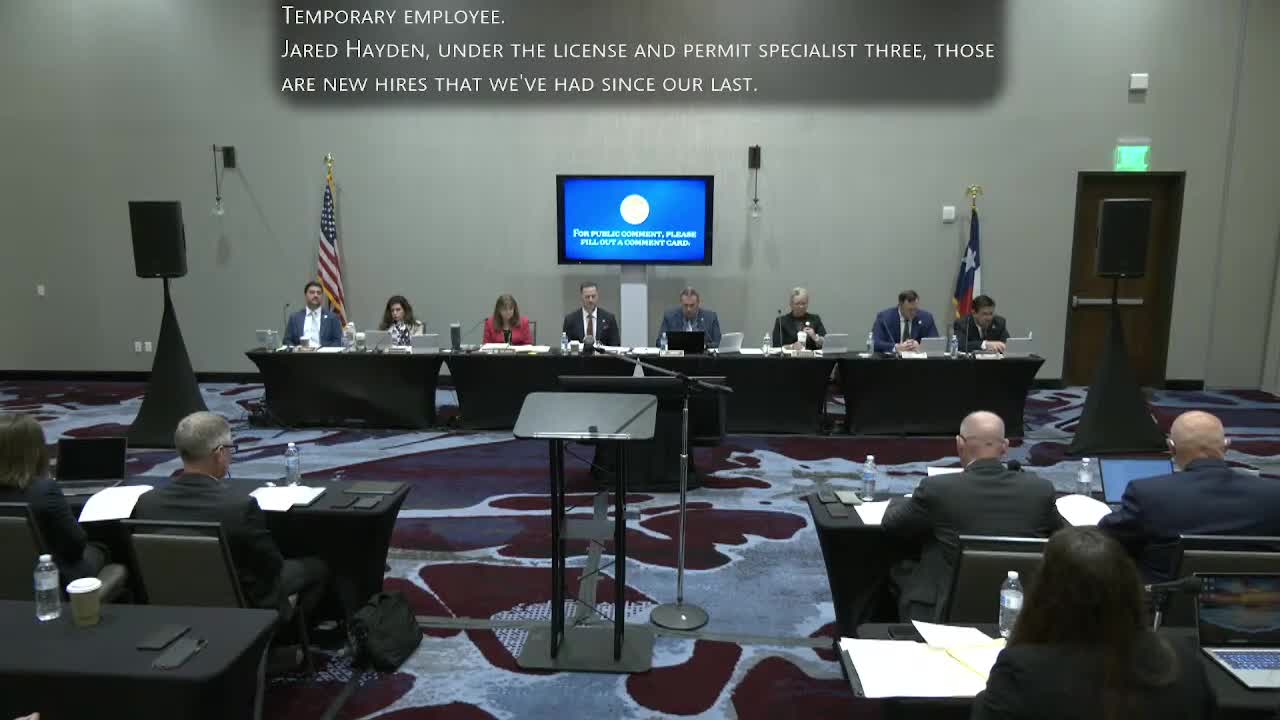Article not found
This article is no longer available. But don't worry—we've gathered other articles that discuss the same topic.
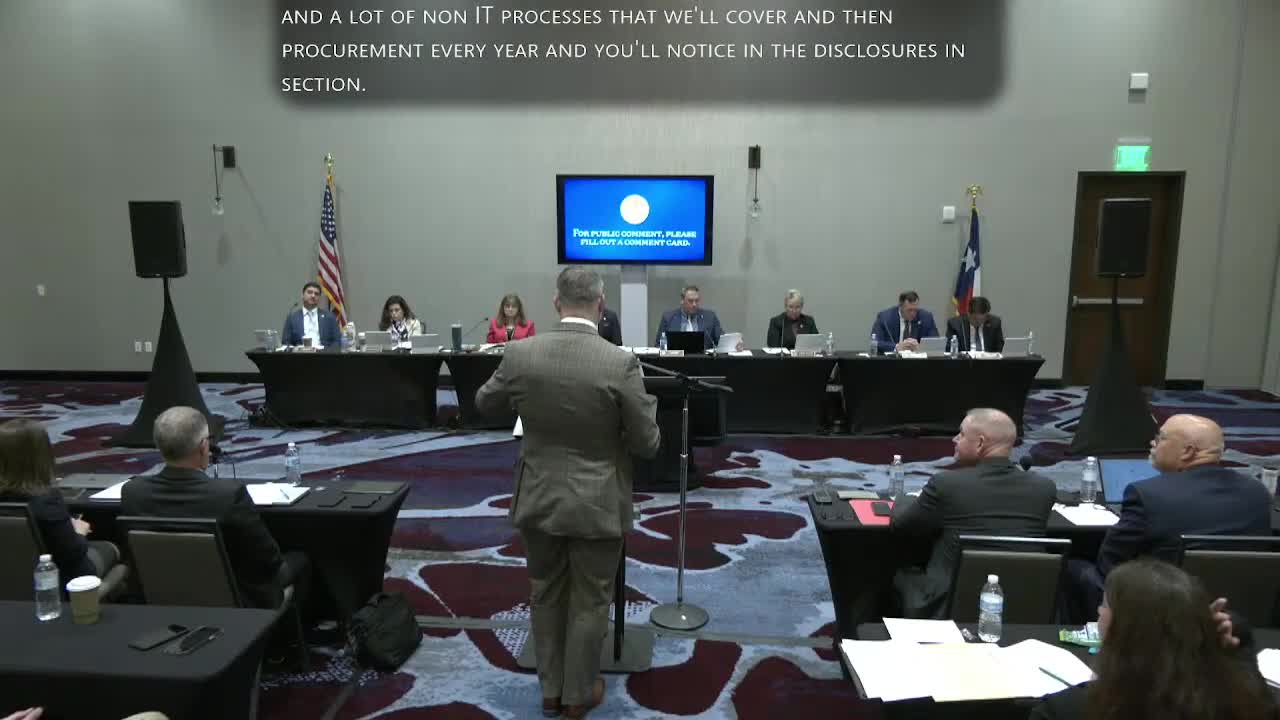
Votes at a glance: TCOLE actions on audits, rules, contracts and disciplinary cases (Sept. 10, 2025)
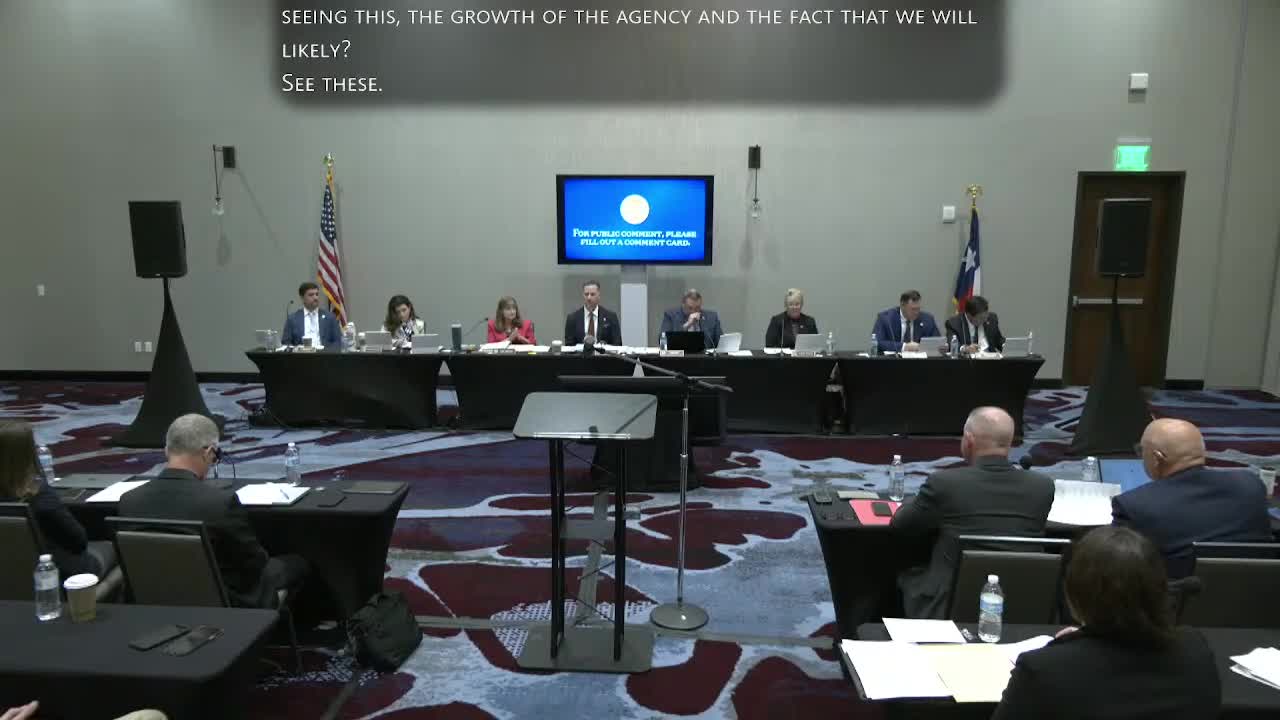
Commission approves capital transfer to develop confidential statewide employment database; vendor OpenText to host system
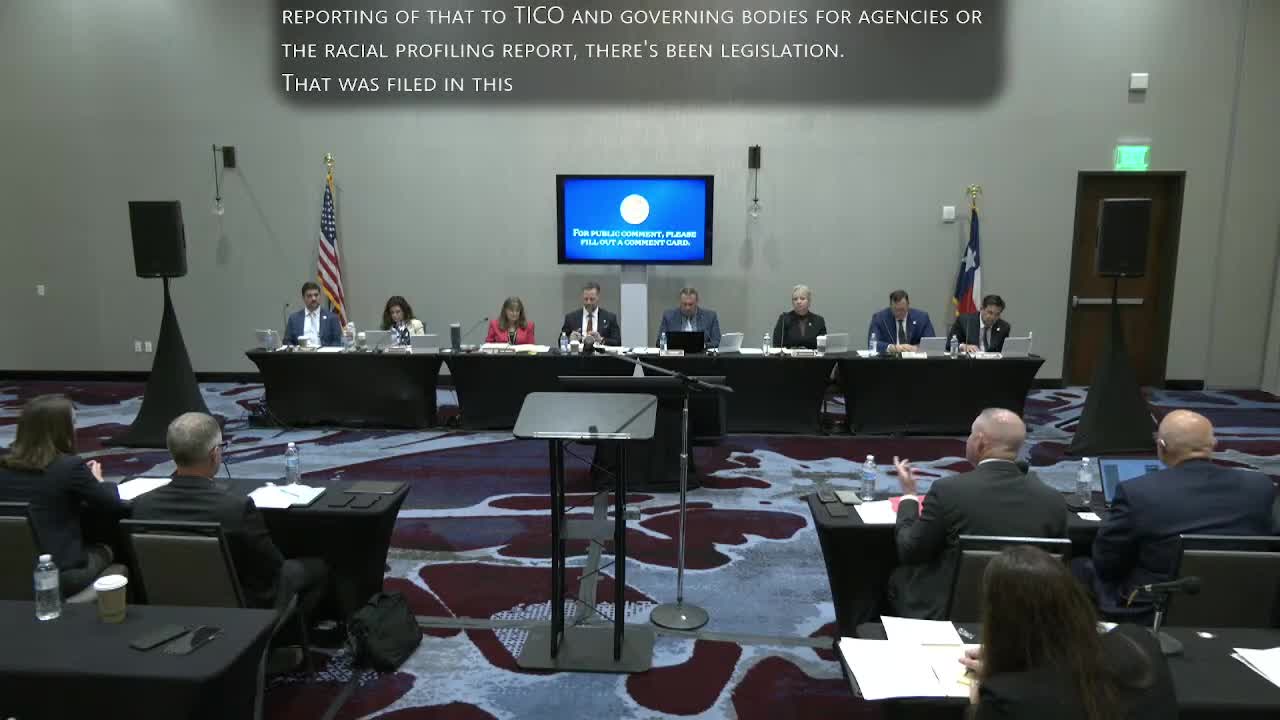
TCOLE to form advisory panels on motor‑vehicle stop data and law‑enforcement polygraph rules
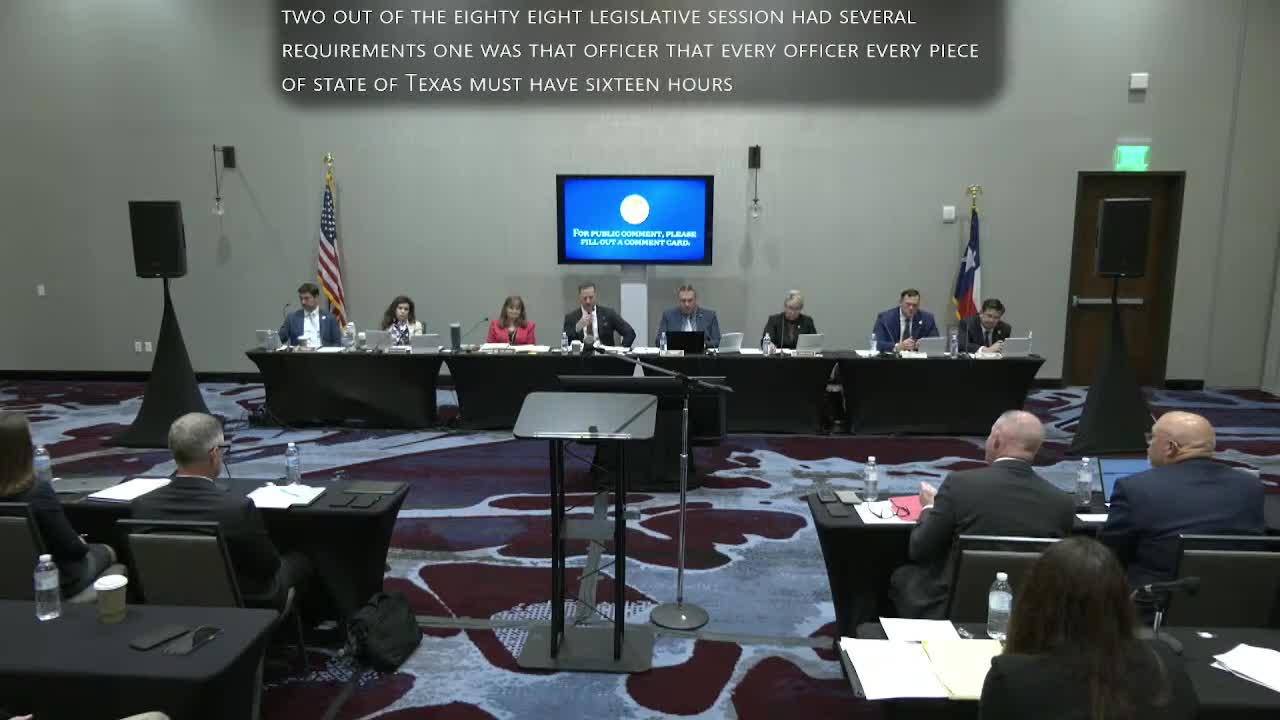
TCOLE reports major progress on ALERT/3311 training; sets timeline to reach remaining officers
